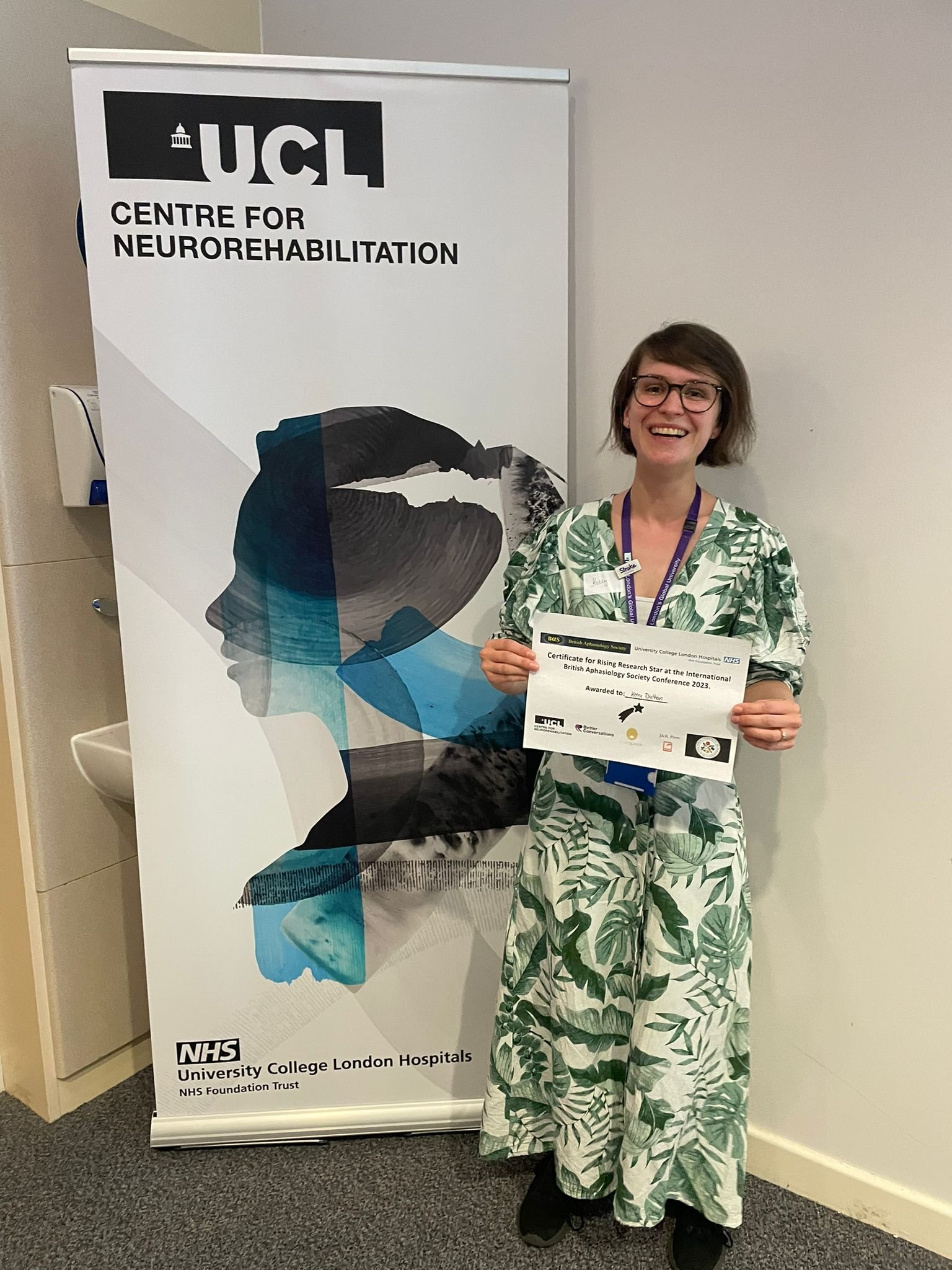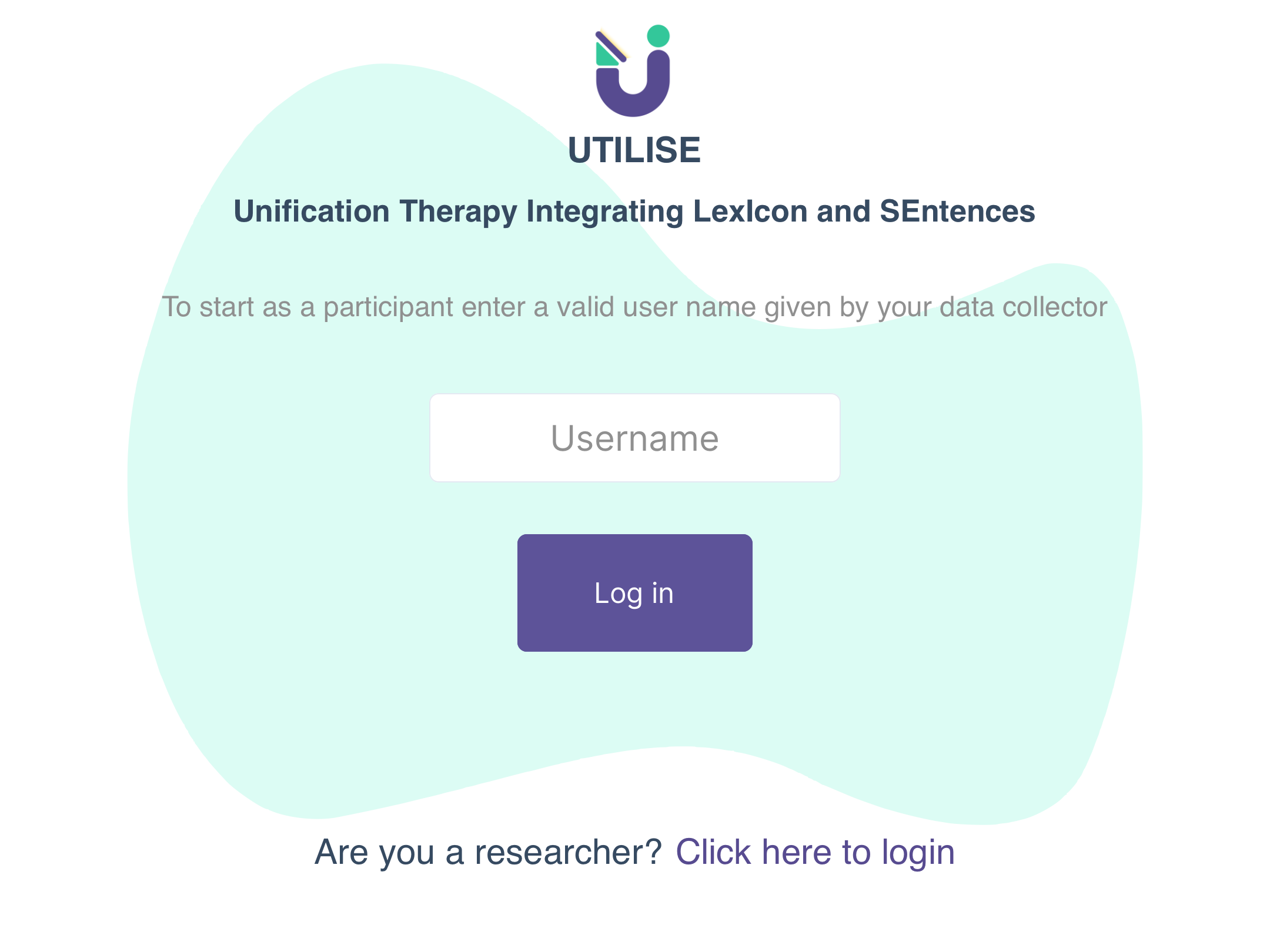The UTILISE team have been busy spreading the word about our work at international conferences over the last couple of months.
In September, Kerry presented (twice!) at the British Aphasiology Society (BAS) Conference, which was held in London at UCL Queen Square. She spoke about outcomes of our pilot trial, both qualitative and quantitative, which we ran earlier in the year. We would like to thank all the participants of the pilot trial for their work using the app and for their attendance at focus groups. These participants gave us valuable insight into their experiences and shared their suggestions for improving the app. Kerry presented these insights as part of her presentations, highlighting the importance of developing effective remote therapy options to maximise dose potential for patients.
Kerry Dathan at the British Aphasiology Society Conference with her Rising Research Star award.
We would also like to thank the BAS team for giving us the opportunity to present our work. It was a terrific 3-day event with lots of fascinating talks, including some from service users. UTILISE team member Fern also presented a poster, sharing some outcomes from our in-person therapy trial.
We are very proud that Kerry was awarded the “Rising Research Star” award for her contributions to the conference. She is, without doubt, already a star, and has a bright research career ahead of her.
Well done, Kerry! A true asset to the team.









